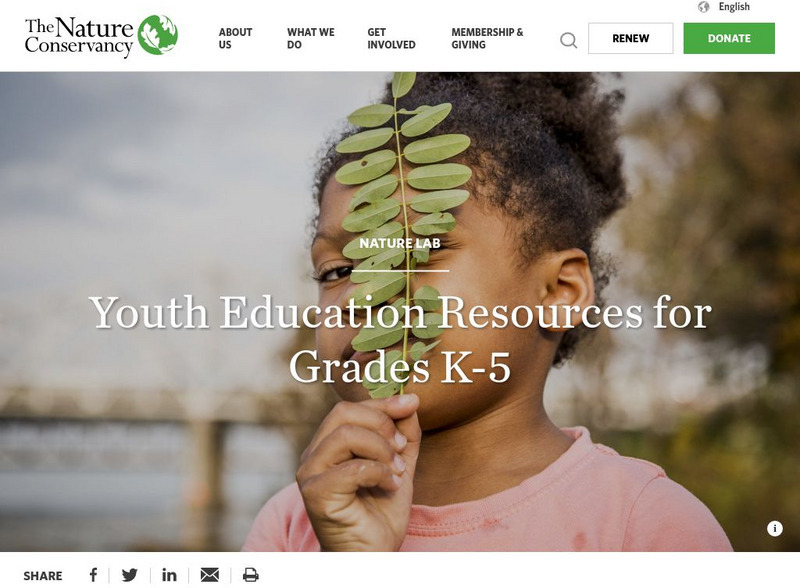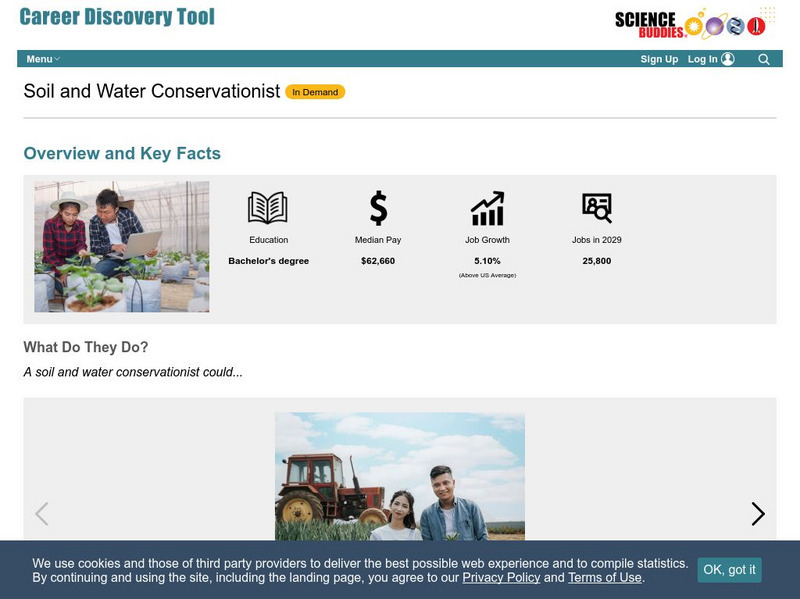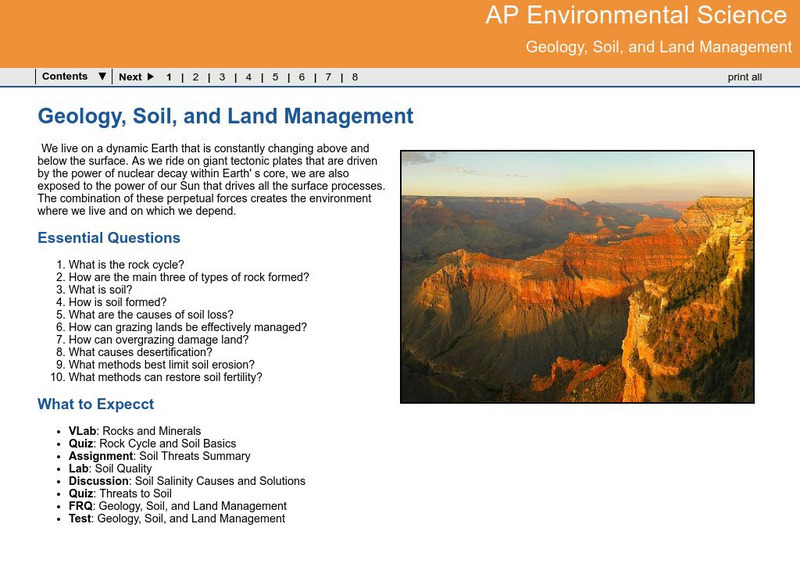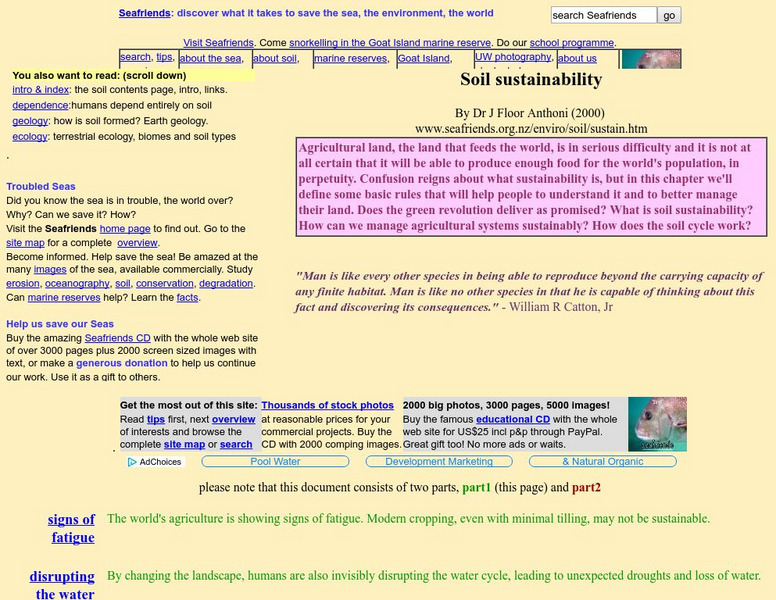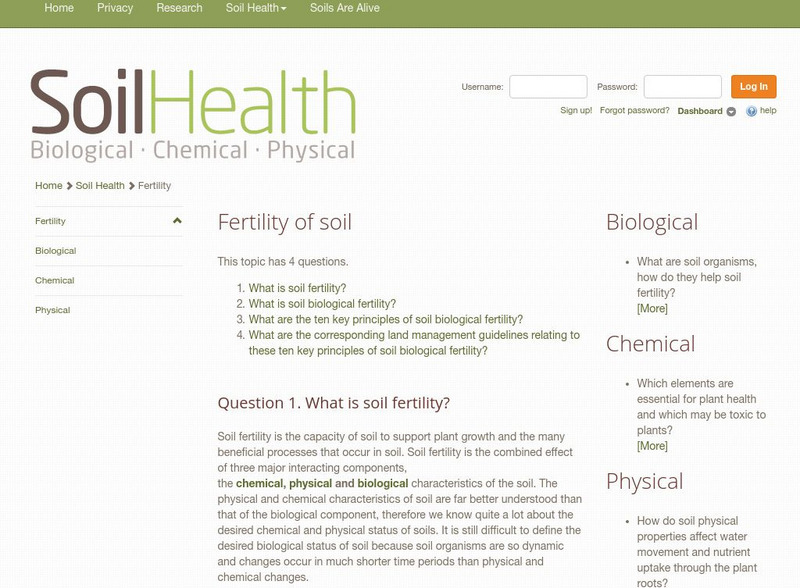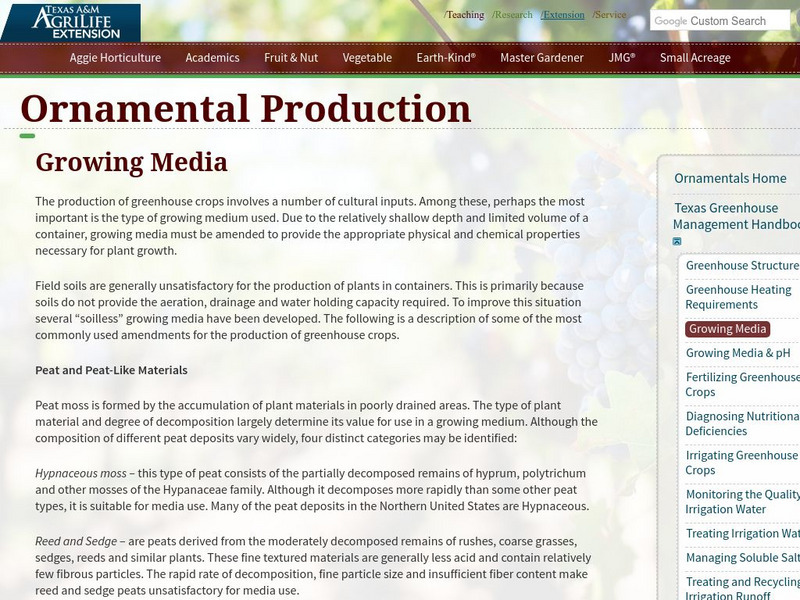Hi, what do you want to do?
Curated OER
The Macaroni Lab
Students are given an introduction to the "ecosystem", what factors make up an ecosystem (biotic factors, abiotic factors, food chain, producers, consumers and decomposers) and how those factors interact.
Curated OER
Tall Tales: Reconstructing A Personal Tell
Sixth graders discover the ways archaeologists examine artifacts and where they are found. After being introduced to new vocabulary, they use artifacts from their own lives and discover what could be told about their life from them. ...
Curated OER
Observing Plants
Students identify how plants affect the survival of a caterpillar and what plants need to survive. They plant three bean seeds in the three containers, placing two containers at a sunny window and the third one in a dark closet and label...
Curated OER
WHERE IS AGRICULTURE?
The students will identify many of the things in their lives that come from agriculture.See if someone involved in production agriculture will "adopt" your class. Students can correspond with the farmer or rancher's family. This will...
Curated OER
Addendum to the Written Curriculum: Measuring Solids
Students use standard rulers to measure the length of common classroom items - such as pencils, books, desk tops - in inches and centimeters, and measure weight in pounds. They also answer math questions, such as "How long is the front...
Curated OER
The Queen's Empire
Eighth graders study insects and make observations about their habitat. in this insect research lesson students research the Internet to compile information on ants.
Curated OER
The Chemistry of Coal
Students investigate the chemistry of coal. This lesson serves as a review of conservation of mass, simple reactions and equation balancing. During the lesson, students research chemical components of coal, as well as environmental...
US Department of Agriculture
Nrcs: Helping People Understand Soils
Comprehensive resource for the study of soil regions. Special information for teachers and students include soil facts, resources, state soils, urban soil issues, state of the land, and more. Be sure to click on their special...
Province of British Columbia
Soil Conservation Surveys Guidebook
The online version of the "Soil Conservation Surveys Guidebook," helps forest resource managers from British Columbia plan and implement sound forest practices. Divided into three sections, the guidebook includes soil conservation...
Curated OER
Bureau of Land Management: Just for Kids: Soil Biological Communities
This engaging site about soil is easy to understand and filled with quick facts. Cartoon graphics and menu tabs highlight topics which include the importance of soil, fast facts, soil critters, food webs, and others.
Nature Conservancy
The Nature Conservancy: Gardens Activity Guide: Soil
In this lesson students conduct a soil analysis to understand soil types and explore the relationship between the garden and healthy, fertile soil. Soil is a natural resource that is crucial to life on Earth and when managed properly, it...
Science Buddies
Science Buddies: Career Profile: Soil and Water Conservationist
Soil and water conservation are important in the protection of the earth's natural resources. Read about the careers that study and encourage conservation. Find out about the educational requirements necessary to become a soil or water...
University of British Columbia
University of British Columbia: Soil Components
Use this interactive website to learn everything you wanted to know about the four components of soil: minerals, organic, water, and air. Many links along the way assist with comprehension by allowing you to view photographs, charts, and...
Georgia Department of Education
Ga Virtual Learning: Ap Environmental Science: Geology, Soil and Land Management
Students explore how Earth processes shape the land, and how important managing the land can be in response to these natural activities.
Curated OER
National Park Service: Soil Resource Management in the National Parks
An article discussing how the National Parks Service uses the soil program to manage soil sustainability. Learn how maintaining the soil is key to protect many other areas in the National Park Services.
Other
Seafriends: Soil Sustainability
Agricultural land, the land that feeds the world, is in serious difficulty and it is not at all certain that it will be able to produce enough food for the world's population, in perpetuity. Confusion reigns about what sustainability is,...
Other
Attra: Sustainable Soil Mangement
How does soil in its native condition function? How do forests and native grasslands produce plants and animals in the complete absence of fertilizer and tillage? What are the principles by which these soils function? The answers to...
TeachEngineering
Teach Engineering: The Stress That You Apply
Students learn about contact stress and its applications in engineering. They are introduced to the concept of heavy loads, such as buildings, elephants, people and traffic, and learn how those heavy loads apply contact stress. Through...
Other
Alberta Riparian Habitat Management Society: Riparian Soils [Pdf]
Riparian soils occur along the edges of a lake, stream or river. Pictures and diagrams in this fact sheet explain the importance of and composition of riparian soils.
Other
University of Western Australia: Soil Health: Fertility of Soil
Explains what soil fertility and soil biological fertility are. Then lists the ten key principles of soil biological fertility, and the land management guidelines for these principles.
Texas A&M University
Texas Greenhouse Management: Handbook: Growing Media
An extensive list of growing media from the Texas A&M Dept. of Horticulture.
Other
Alberta Riparian Habitat Management: Protecting Shorelines & Streambanks [Pdf]
Protecting Shorelines & Streambanks - Naturally explains the critical importance of healthy shorelines for preventing soil erosion and filtering out pollutants. It looks specifically at riparian areas, such as those in Alberta, which...
Other
Alberta Riparian Habitat Management Society: Growing Restoration [Pdf]
This article describes how to go about restoring a freshwater shoreline in a riparian area in Alberta.
Other
Conserve Energy Future: What Is Soil Pollution?
Students learn about the natural resource, soil, and explore the ways it can become polluted.















